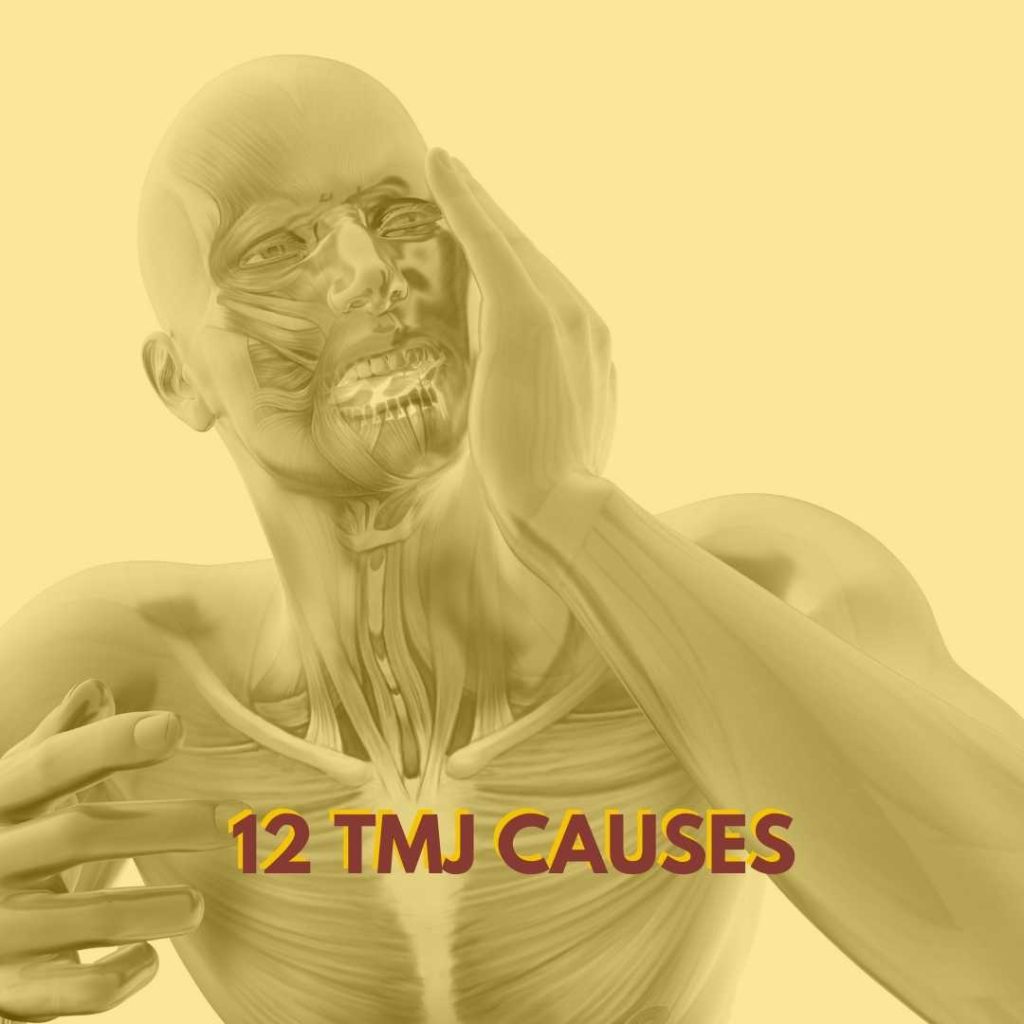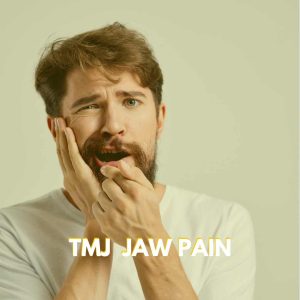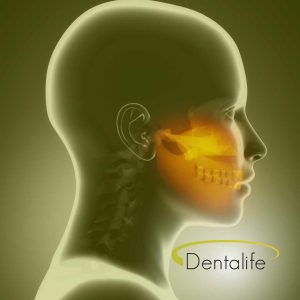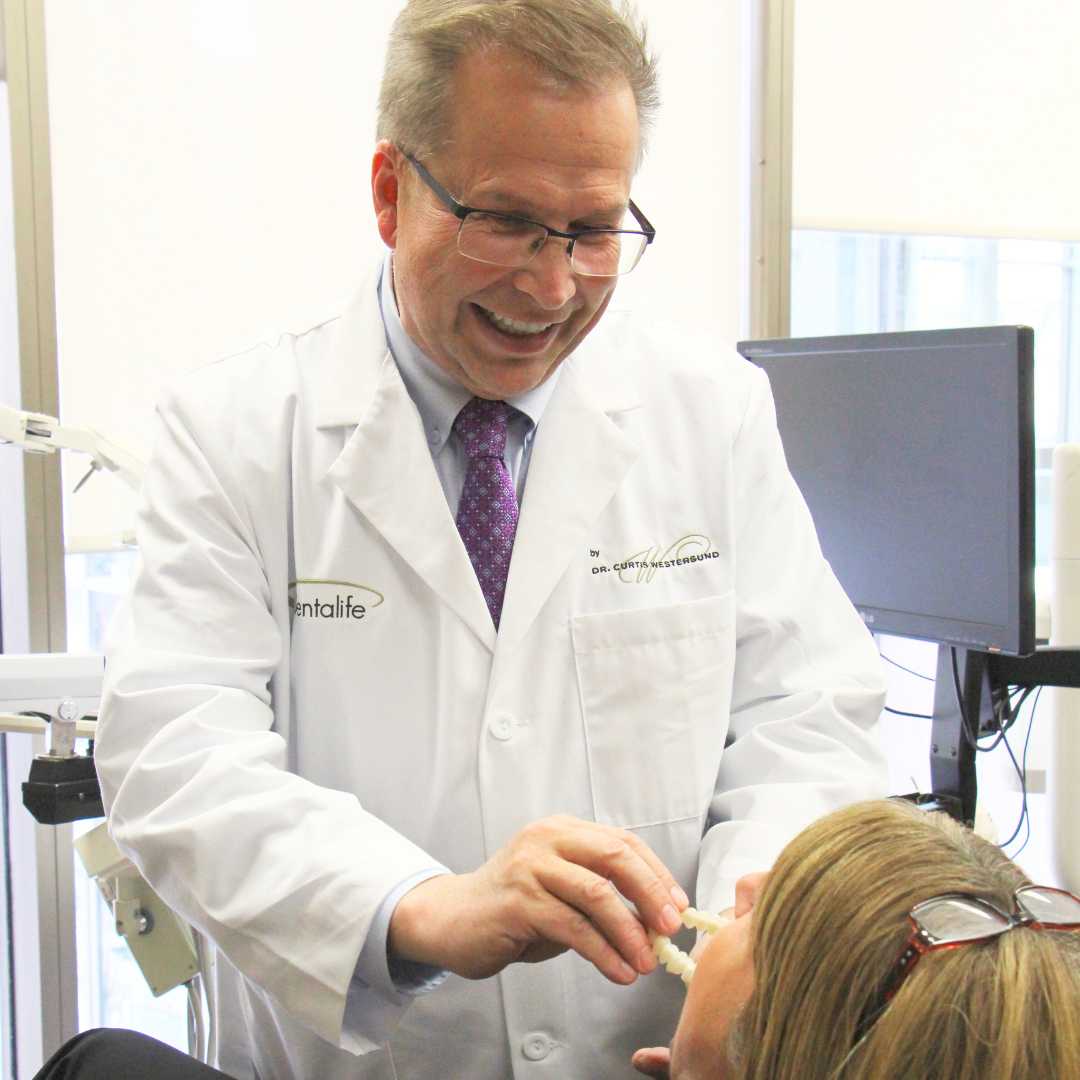Calgary TMJ Treatment Provider Dr. Curtis Westersund, at Dentalife:
“TMJ or temporomandibular joint disorder is a condition that affects the joints in the jaw that connect the skull to the lower jawbone. It can lead to pain, discomfort, and difficulty in chewing or speaking. Many factors can cause TMJ, and some of them are often overlooked. In this blog, we’ll present 12 TMJ causes that you might didn’t know about.”
12 TMJ Causes You May not Know About
1. Injury
One of the common causes of TMJ is a physical injury to the jaw. A blow to the jaw can cause damage to the TMJ, leading to pain and discomfort. Injuries to the jaw can also cause jaw misalignment, which can create TMJ problems.
2. Bad Luck
One of the most common injuries to TMJs comes from Motor Vehicle Accidents (MVAs). A whiplash to the neck often means a whiplash to the jaw. See your dentist for help. Being involved in an MVA can make a functioning jaw joint fail to function
3. Tooth Decay
Tooth decay is another surprising cause of TMJ. Decay can cause the teeth to shift, leading to misalignment and pressure on the TMJ. This pressure can lead to pain and discomfort. Losing a tooth can create immediate strain on the remaining teeth and the TMJ.
4. Neglect
If a tooth is lost and not replaced, many teeth will tip and introduce damaging strain on the jaw joints and jaws. Treat teeth as precious gems that help stabilize your jaws, head, and neck. If possible, replace them when lost.
5. Arthritic changes
Arthritic changes to joints can come from strain to the joint or due to autoimmune responses to the whole body. Chronic strain to the jaw joints can lead to permanent TMJ bone and ligament damage.
6. Stress
We all have stress. It is part of life. Some people express their stress by clenching and grinding of their teeth, leading to pressure on the TMJ. Not only are the teeth damage, the function of the TMJ will be strained and become damaged.
7. Teeth Grinding
Some people grind their teeth at night. Some during the day. Some night and day. If you grind your teeth at night it often indicates a nighttime breathing disturbance. Often called bruxism, is a significant cause of TMJ symptoms.
8. Dental Procedures
Dental procedures, such as root canals, fillings, and extractions, can strain the TMJ’s. A filling or crown that is too large can create strain to the TMJ. This strain can create a number of TMJ dysfunction symptoms.
9. Medical Procedures (Surgery)
Medical procedures, such as surgery, can also cause TMJ. Procedures that require intubation, such as general anesthesia, can cause pressure on the TMJ, leading to pain and discomfort.
10. Sleep Disturbance Problems
Clenching your teeth at night is common. It may mean that your airway, from your nose to your lungs, is restricted or narrowed. This obstruction to breathing is often accommodated by clenching your teeth at night. And if the way the teeth clench is uneven, bruxism (grinding teeth) is a common outcome. People wake up with sore jaws from trying to overcome breathing obstructions.
11. Bad Posture
How can bad posture cause TMJ problems? Well, we are all connected as one integrated and interactive being. Poor posture can cause misalignment of the jaw, leading to pressure on the TMJ. This pressure can lead to pain and discomfort.
12. Genetics
Finally, genetics can also play a role in TMJ. Changes in how our bodies grow and function can be inherited. A common problem comes from a connective tissue disorder called Ehlers-Danlos Syndrome. But there are many other inherited factors that can affect TMJ function.
Can a dentist help with TMJ pain?
Your bite, jaw placement and overall dental health play a very significant role in TMJ disorders. Past and current upper body and facial injuries, prior dental treatment (or lack thereof) teeth grinding, chewing habits, and genetic causes, can all leave an impact on your bite and your facial joints.
Your overall mouth health is connected to the balance of multiple facial muscle groups and when your teeth are wearing out, or change position because of teeth loss or damage, the upper and lower jaws will not align properly with an uneven bite, which can create stress and pain symptoms.

Calgary TMJ Practitioner Dr. Curtis Westersund:
“Not all general dentists provide TMJ treatment. At Dentalife, we provide TMJ treatments for a variety of jaw and bite problems.
Note that every TMJ Treatment will be different because a personal treatment plan will be based on your unique, individual parameters and may include:
- TMJ Orthotic
- Bite Modification
- Sleep Airway Assessment
- A combination of the above solutions
If you’re experiencing TMJ symptoms, it’s essential to speak with a TMJ Practitioner like general dentist Dr. Curtis Westersund in Calgary downtown, to determine the cause and appropriate TMJ treatment.
Make an appointment today.




